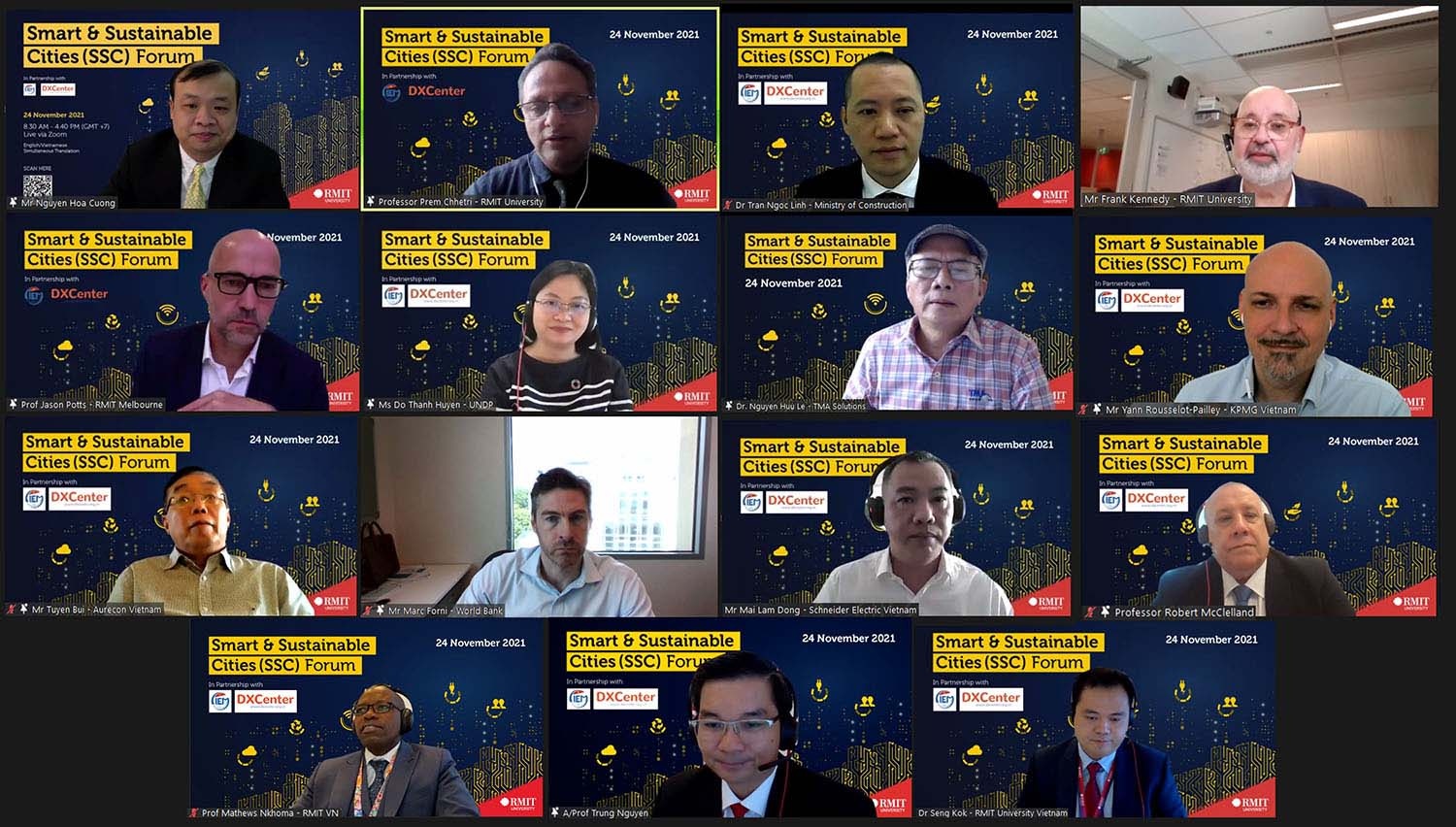Digital globalisation calls for smart and sustainable cities
Vietnam has been an attractive destination for international businesses for the last 30 years due to its rapid economic reforms, rich resources, and high population. According to World Bank data, Vietnam is amongst the fastest-growing economies globally, with an average GDP growth rate of 6.31 per cent from 2000 to 2020.
RMIT University senior programme manager for International Business and master of International Business Dr. Erhan Atay believes that Vietnam is finding itself in a new era of globalisation that requires a different approach to sustain its attractiveness for international business.
He explained that while earlier forms of globalisation were mostly about the trade of labour-intensive, tangible manufactured items across borders, new globalisation is about providing integrated and intangible digital services to companies and individuals. This can be called “digital globalisation".
 |
| Globalisation in the digital era is about providing integrated and intangible digital services to companies and individuals (photo: Unsplash) |
The RMIT expert pointed out the relationship between new digital business models and international trade: “New business models rely on IT-based applications and instant information sharing. The information flows help organisations and individuals establish new local, regional, national, and international connections in trade, finance, and society. All such links may help trade actors to expand their trade volume.”
| Vietnam has been an attractive destination for international businesses for the last 30 years due to its rapid economic reforms, rich resources and high population. |
Dr Atay remarked that the competition between countries and cities is increasing day by day. Each region has to “up its game” to attract investors, especially as global organisations are now more selective.
“International investors will consider new factors when choosing where to invest. These include how digitalised the destination is, how sustainable the economy is, and how social the environment is. These factors will outweigh traditional investment decisions such as cheap labour, rich resources, and high population."
“In the new era, sustainable smart cities that enable the transfer of data, technology, ideas, and best practices while providing a livable and sustainable environment may affect the investment decisions of international business actors,” Dr Atay suggested.
Speaking at the recent Smart and Sustainable Cities Forum held by RMIT University, leaders from multinational companies echoed this view.
 |
| From left to right: Dr Erhan Atay (RMIT University senior programme manager), Tuyen Bui (Aurecon Vietnam technical director) and Dong Mai Lam (Schneider Electric Vietnam and Cambodia cluster president) |
Tuyen Bui, technical director and senior advisor of international engineering advisory company Aurecon Vietnam, said: “Sustainable smart city initiatives, which aim to establish a healthy balance between economic, social, and environmental factors, will be an important criterion for new FDI investments.”
“Robust digital infrastructure is particularly important for smart cities to function. That means a focus on solutions such as wireless networks, smart water and energy management, wastewater recycling, intelligent transport system, automated parking management, among others,” Tuyen noted.
He underscored that while doing so, “Vietnamese cities should follow international standards and frameworks for smart city development.”
Cluster president of Schneider Electric Vietnam and Cambodia Dong Mai Lam highlighted that sustainable smart cities will have to be more digital and more electric.
“The technology that we need to implement three times faster needs to be directed in three simple directions: electrification – because this is the only way to decarbonise; decarbonisation of electricity production; and efficiency. These three action areas have the potential to reduce emissions in line with what we need to do to transition our energy system and be back to the 1.5 degrees Celsius trajectory of global temperature rise,” Lam said.
“Both corporate and individual customers have become more aware of the dimensions of sustainability which have to become carbon neutral and trend to net-zero. And so we must bring disruptive technologies to make products and systems more sustainable and green premium,” he added.
 |
| Experts at the recent Smart and Sustainable Cities Forum spearheaded by RMIT University |
Dr Erhan Atay from RMIT University observed that Ho Chi Minh City, Hanoi, Danang, Nha Trang, and Binh Duong are carrying out administrative reforms to initiate and accelerate smart city projects to attract more foreign investors.
“Vietnam should accelerate its sustainable smart city investments to maintain its high growth rates in the last 30 years, be a centre of attraction for foreign investors, and, above all, offer a high quality of life to its residents,” Dr Atay concluded.
What the stars mean:
★ Poor ★ ★ Promising ★★★ Good ★★★★ Very good ★★★★★ Exceptional
Related Contents
Latest News
More News
- A golden time to shine within ASEAN (February 19, 2026 | 20:22)
- Vietnam’s pivotal year for advancing sustainability (February 19, 2026 | 08:44)
- Strengthening the core role of industry and trade (February 19, 2026 | 08:35)
- Future orientations for healthcare improvements (February 19, 2026 | 08:29)
- Infrastructure orientations suitable for a new chapter (February 19, 2026 | 08:15)
- Innovation breakthroughs that can elevate the nation (February 19, 2026 | 08:08)
- ABB Robotics hosts SOMA Value Provider Conference in Vietnam (February 19, 2026 | 08:00)
- Entire financial sector steps firmly into a new spring (February 17, 2026 | 13:40)
- Digital security fundamental for better and faster decision-making (February 13, 2026 | 10:50)
- Aircraft makers urge out-the-box thinking (February 13, 2026 | 10:39)

 Tag:
Tag:





![[Infographic] AMATA: Industrial and Smart City Developer](https://vir.com.vn/stores/news_dataimages/2026/022026/12/16/croped/amata-industrial-and-smart-city-developer-20260212165823.jpg?260212050401)
















 Mobile Version
Mobile Version